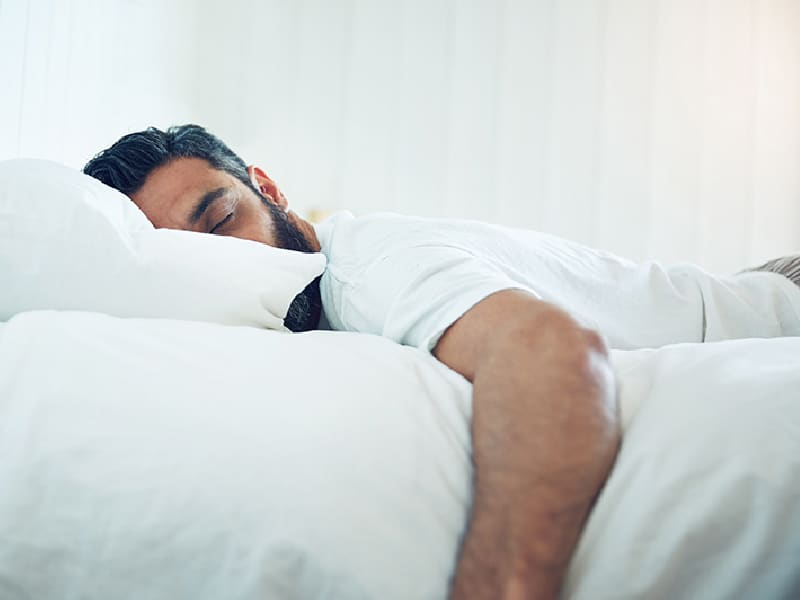We spend up to one-third of our lives asleep, which is a lot. It would be nice to know that all those hours you spend in bed are well-spent. You might have insomnia and not be able to fall asleep at all. Or half of your sleep time could be spent in the lighter stages of REM while you’re tossing and turning. Or you’re snoring so loudly that your partner isn’t getting any sleep either. Now both of you will be drifting off around 2 p.m. at work tomorrow — and that’s not helping anyone.
So as the medical, beauty, and mental health communities learn just how much sleep helps us — clearer skin, happier days, weight loss, and avoiding overall grumpiness — sleep has become studied more and more. That’s where sleep clinics come in.
“People schedule sleep studies for a lot of different reasons,” says John Kuzma, director of respiratory therapy at Methodist Charlton Medical Center. “Tiredness, high blood pressure, waking up in the middle of the night, falling asleep on a whim, or the most common: a spouse complaining of snoring.”
If you feel like you might benefit from a sleep study because of insomnia, talk to your physician. Your doctor will give you an assessment, then a referral to the lab if they think you fit the symptoms.
The Methodist Charlton Sleep Diagnostic Center, which opened in 2013, has two rooms, which means two studies scheduled a night. They try to get the first appointment down by 9:30 p.m. and the second patient by 10 p.m. Since the study is overnight, you won’t have to take off any time from work, so no excuses.
To get to the root of your problem, tests are done to monitor and record a variety of body activities while you sleep, including brain waves, breathing, heartbeat, eye movements, and body movements.
Stick to your bedtime routine
Prior to your appointment at the sleep clinic, you will be asked to fill out a packet that dives into your sleep patterns and habits.
The day of, pack a bag with all of your usual bedtime needs. This includes pajamas that you normally wear and maybe a pillow or a book. The key to preparing for a study is just following your routine. If you normally read 10 pages of a book, then make sure you bring a book. If you usually watch an episode of Friends, there is a flat-screen TV located in the room.
You’ll arrive at the lab 45 minutes before lights out. Then the key is to relax. Each room is designed to look very similar to a hotel and not at all like a hospital room. They are triple-insulated, so basically sound-proof. You’ll be given awhile to get comfortable with the situation.
The study facilitators promote patients doing whatever they normally do and keeping their routine before they go to sleep. Except for one thing you might be guilty of — caffeine intake. No coffee, energy drinks, or tea for a few hours before you check in.
As soon as you are feeling relaxed, a technician will come in and start hooking up all the monitors, which takes about half an hour. Ample time is given to the patient to adjust to all the monitors, as most people think they will never be able to sleep with all the cords and monitors attached. The facilitators will ask you about the room temperature and comfort level in general, and when everything is ok, it’s lights out.
The recording of your habits is now in progress, complete with videotaping and heart monitors, oxygen level monitors, and body movements, among other helpful reports.
Rise and shine
You’ll be woken up bright and early and sent on your merry way, then you’ll receive the results days after.
It’s common to think that people experience sleep state misperception. Nine out of 10 patients will say they didn’t sleep a wink but got in a solid five hours. Some cases of insomnia are really not insomnia in the traditional sense. People will often sleep for normal durations, yet overestimate the time taken to fall and remain asleep. So you could go into your study thinking one thing, and then realize there’s nothing wrong at all.
But you’ll never really know, not in-depth at least, if you don’t spend the night at the sleep lab.
Learn more about scheduling a sleep study at Methodist Charlton. Learn more about the Sleep Disorders Center at Methodist Richardson Medical Center.

